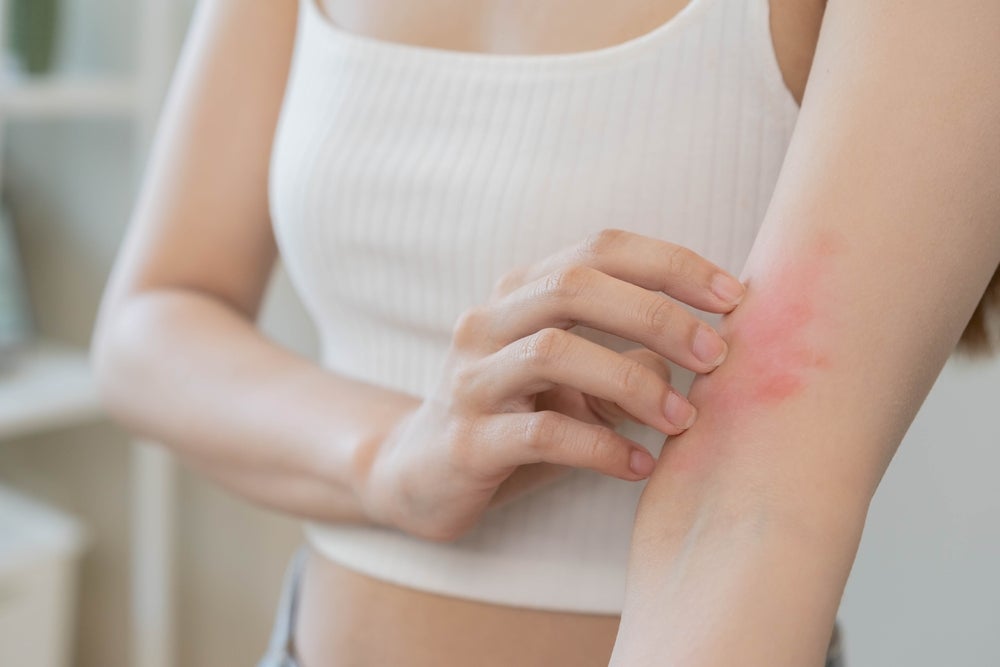England’s National Institute for Health and Care Excellence (NICE) has recommended Almirall’s Ebglyss (lebrikizumab) for patients with moderate to severe atopic dermatitis, giving NHS patients another biological therapy option.
In line with NICE guidelines, the NHS will now have 90 days to make the treatment available to patients.
Patients over 12 years of age who have not responded to or are not able to take systemic immunosuppressants will be eligible for the therapy, as per a 10 July press release.
Monoclonal antibody Ebgylss will join Sanofi / Regeneron’s Dupixent (dupilumab) and LEO Pharma’s Adbry (tralokinumab) as interleukin-targeting options for treating the skin condition. The Janus kinase (JAK) inhibitors Cibinqo (abrocitinib), Olumiant (baricitinib), and Rinvoq (upadacitinib) developed by Pfizer, Eli Lilly, and AbbVie, respectively, are also recommended by NICE.
Atopic dermatitis, also known as atopic eczema, is an inflammatory skin condition characterised by intense itching. It has an estimated prevalence of up to 4.4% among adults in the EU. In the UK alone, around 5.2 million adults have moderate to severe atopic dermatitis.
Ebglyss, which was approved in Europe in October 2023, and then two months later in the UK, works by inhibiting interleukin-13 (IL-13) signalling. IL-13 pathways play an important role in inflammation, driving the type-2 inflammatory loop in the skin. Adbry similarly targets IL-13 while Dupixent inhibits IL-13 and IL-4.
The National Eczema Society’s chief executive Andrew Proctor said: “It’s important we have a range of treatment options, so patients have the chance to access a treatment that works well for them.”
Almirall licensed the rights to develop and commercialise Ebglyss in dermatology indications, including atopic dermatitis, in Europe from Dermira in 2019. Dermira was then acquired by Eli Lilly, the latter retaining drug rights in the US and the rest of the world.
Ebglyss is forecast to reach blockbuster status by 2026, according to GlobalData’s Pharma Intelligence Centre. By 2030, the drug is predicted to generate nearly $3.4bn in global sales.
GlobalData is the parent company of Pharmaceutical Technology.
Amid Sanofi and Regeneron’s Dupixent dominance, Johnson & Johnson (J&J) made a play for the atopic dermatitis space earlier this year when it spent $1.25bn to acquire Numab Therapeutics’ antibody NM26 in May.









